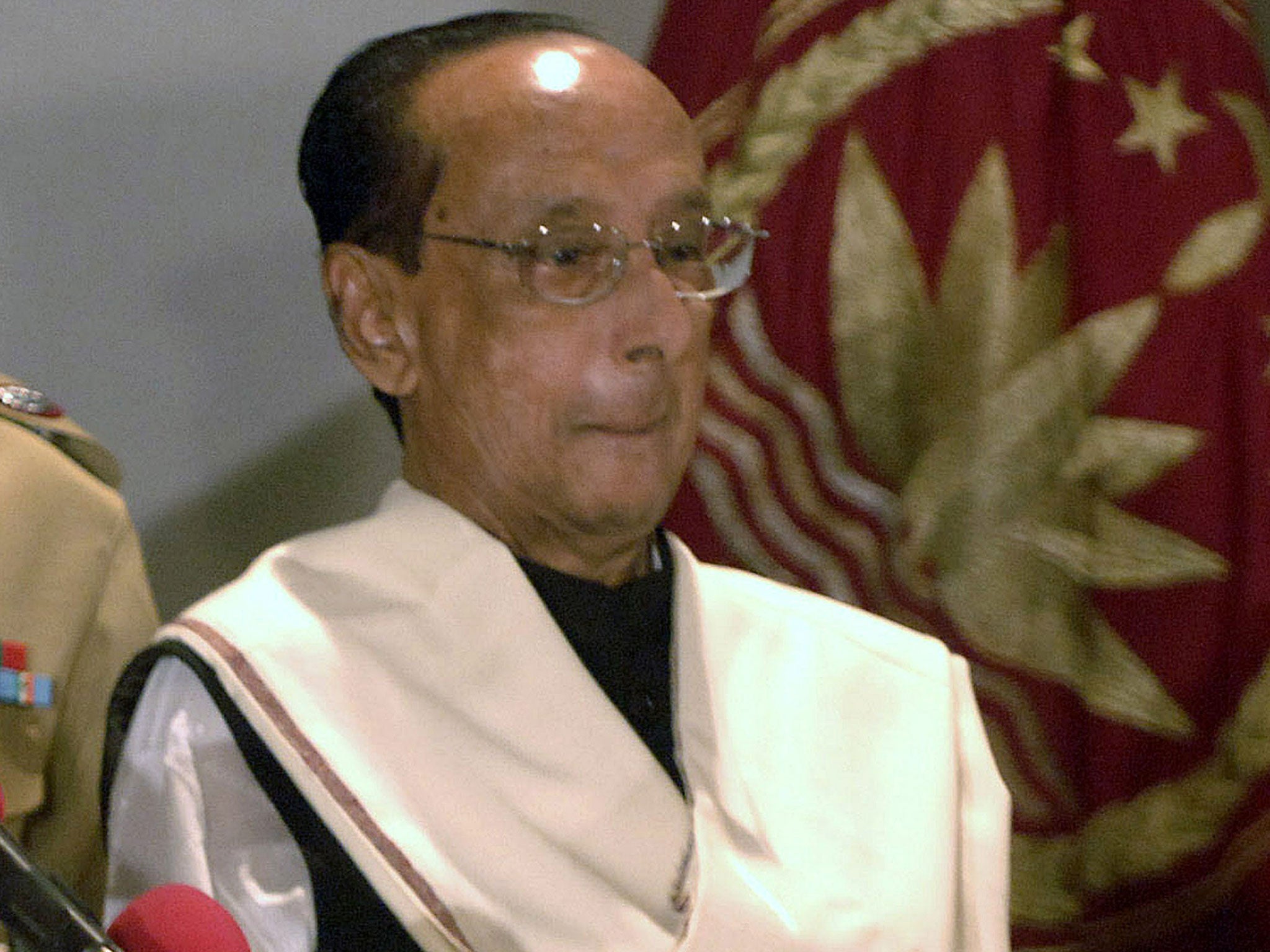
In age and bitter experience, Bangladesh's President Zillur Rahman exceeded every other major political figure alive today in the Indian subcontinent.
The small, frail pioneer of his unhappy country's independence began his political career before India's old President, Pranab Mukherjee, or her still older Prime Minister, Manmohan Singh; and before Sri Lanka's octogenarian Prime Minister DM Jayaratne; and long before any of the present ruling generation in Pakistan.
At 84, Zillur performed within days of his death what was to be his last public duty as figurehead leader of the Bengali state, when at the start of this month he received President Mukherjee on a visit to its capital, Dhaka. This, the final flourish in a life punctuated by imprisonment and grief, was no different in the violence that marred it. Flames and explosions erupted in the streets, including a bomb at the visiting statesman's hotel, in protests over the death sentence for Delwar Hussain Sayeedi of the Jamaat-e-Islami party for alleged murder, torture and persecution.
From Zillur's first public utterances, made in 1952 in defence of the Bengali language, the university lawyer and historian had to co-exist with political instability too deep for any individual to cure, and by recent weeks, sick with respiratory illness, he could only watch as the current unrest surpassed even what had gone before.
Though the office of president, to which he was elected unopposed in February 2009, is largely ceremonial, he had played a crucial role for more than half his lifetime in preserving and uniting the Awami League, the movement led by Sheikh Mujibur Rahman which the outside world associates most with the breakaway from Pakistan after war 42 years ago in 1971.
Zillur served as general secretary from 1972, and after "Mujib" was assassinated in 1975, kept the political legacy of "the Father of the Nation" intact through many years under the military rule first of General Ziaur Rahman, who was assassinated in 1981, and then of General Hussain Mohammed Ershad – later imprisoned and released – who is a year younger than Zillur, and still living.
Some accused Mujib's regime of having fallen into corruption and tyranny. But the criticism never tainted Zillur, who remained a respected political figure. He became a supporter and confidant of Mujib's daughter, Sheikh Hasina, and continued to represent the Kishoreganj (Kuliarchar-Bhairab) constituency. He was jailed in 1986 during the military period while a member of parliament.
When the Awami League returned to power after elections in 1996, Sheikh Hasina made him her Minister for Local Government, Rural Development and Co-operatives, and he was also the parliament's deputy leader until Hasina stepped down in 2001 after becoming the first prime minister in the country's history to complete a five-year term.
Already in his seventies, Zillur had his greatest personal sorrow to come. After a coalition government, and Hasina's subsequent loss at the polls to the Bangladesh Nationalist Party led by Ziaur Rahman's widow Khaleda Zia, a series of bomb attacks piled misery upon the country. That violence was to rob Zillur of his wife Ivy, who was injured in a grenade attack in on 21 August 2004 at an Awami League rally in Dhaka, and died three days later. The attack, with 13 grenades, killed 22 people, but Sheikh Hasina, the intended victim, survived.
During his last years Zillur was to be seen weeping for Ivy, a woman of pleasing looks and manner who had served as the Awami League's Women's Affairs Secretary, as he placed flowers on her grave at the city's Banani cemetery, where he would himself eventually be buried beside her.
The couple had met during the late 1950s amid the wistful idealism of the campaign to advance the Bengali language in the face of the official use of Urdu imposed by the authorities. The story goes that the matchmaker in the love-affair was Mujib.
The "Great Language Movement was the spur that would eventually lead to the push for independence from Pakistan. A number of students were killed on the premises of Dhaka University by security forces for breaching a ban on meetings when they protested on 21 February 1952 – now a national day of remembrance.
Zillur and Ivy, 15 years his junior and daughter of the principal of Dhaka College, were married in 1958 and he took part in the Six-Point Movement of 1966 demanding a federal structure for Pakistan allowing the eastern part more autonomy. He was elected to parliament in Pakistan in 1970, but the following year concentrated on the broadcasts of the then-clandestine radio station Swadhin Bangla Betar Kendra (Free Bengal Radio Station) set up at Chittagong and later in Kolkata in India, from which the declaration of independence was made. He also contributed to the Joy Bangla ("Bengali Victory") newspaper.
Zillur Rahman was born at Bhairab on the Meghna river, the son of a lawyer, and attended Bhairab KB High School and Dhaka College before graduating with an MA in History and an LLB in law from Dhaka University.
Anne Keleny
Mohammed Zillur Rahman, politician: born Bhairab, East Bengal 9 March 1929; married 1958 Jebun Nahar Ivy (died 2004; one son, two daughters); died Singapore 20 March 2013.
Subscribe to Independent Premium to bookmark this article
Want to bookmark your favourite articles and stories to read or reference later? Start your Independent Premium subscription today.

Join our commenting forum
Join thought-provoking conversations, follow other Independent readers and see their replies